Partner with a TOP-TIER Agency
Schedule a meeting via the form here and
we’ll connect you directly with our director of product—no salespeople involved.
Prefer to talk now?
Give us a call at + 1 (645) 444 - 1069
"Reveals a powerful trend and content creators are building some of today's most successful mobile applications. Here are the key apps and lessons:"
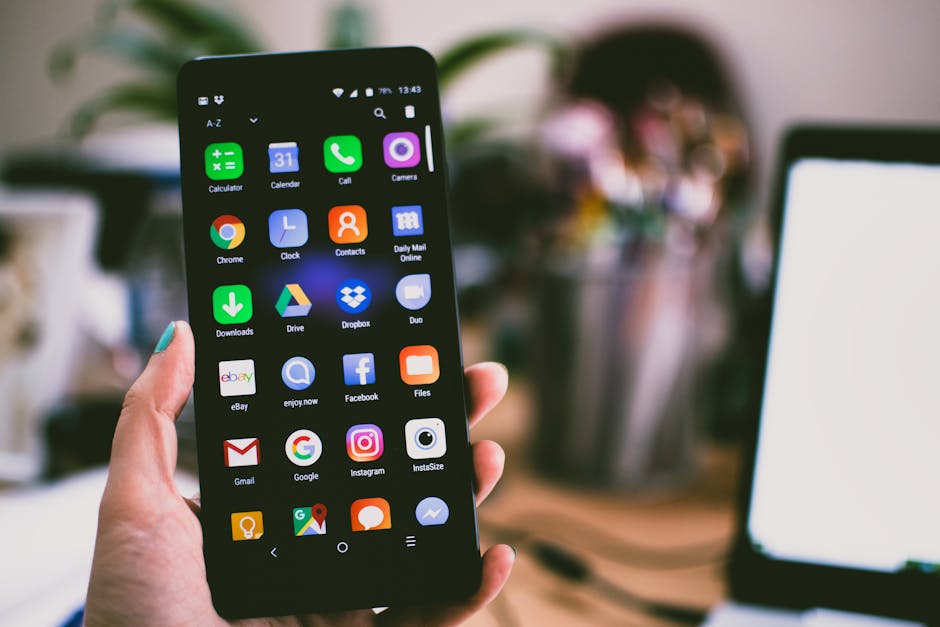
Top 5 Influencer-Founded Apps and What Startups Can Learn reveals a powerful trend: content creators are building some of today's most successful mobile applications. Here are the key apps and lessons:
The creator economy, valued at over $104 billion with 50 million creators, sees influencers shifting from brand partnerships to app ownership. Unlike traditional startups, these apps launch with built-in audiences, solving problems their creators personally experienced and benefiting from instant community feedback.
These apps prove that deep user understanding is key. Nikita Bier's Gas, for example, solved the specific social validation needs he saw in high school communities.
The pattern is clear: successful influencer-founders combine authentic problem-solving with audience engagement, turning followers into beta testers, brand ambassadors, and loyal customers.
At Synergy Labs, we help clients replicate this model. Our experience with apps like Clapper, which hit 1 million downloads post-launch, shows how the principles from Top 5 Influencer-Founded Apps and What Startups Can Learn can be applied to any startup aiming for genuine user connections.
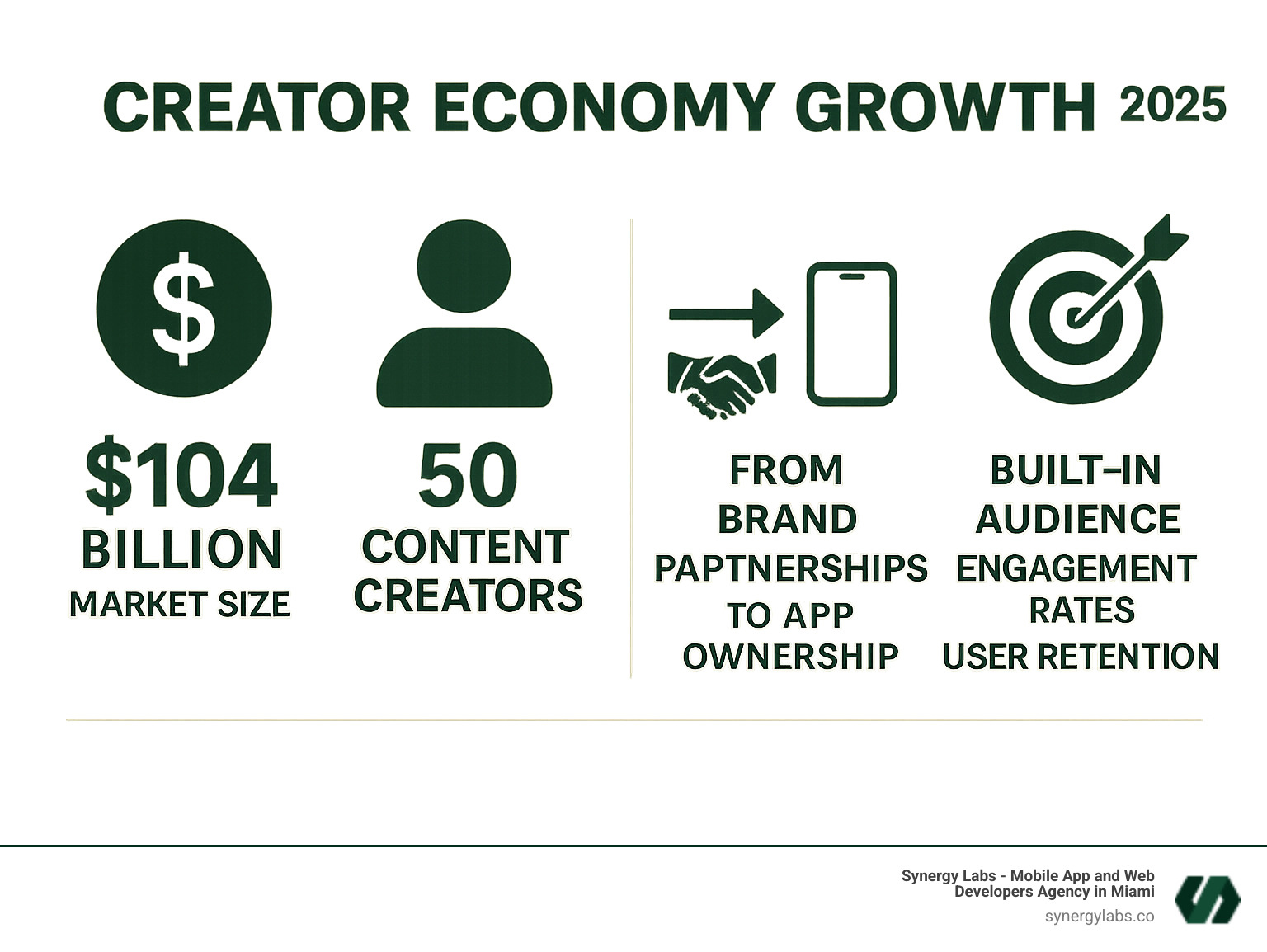
When influencers build apps, entrepreneurial magic happens.
The Top 5 Influencer-Founded Apps and What Startups Can Learn show how creators build products that solve real problems for their communities, often outmatching traditional tech companies. These are genuine innovations, not vanity projects.
Each app demonstrates a unique approach, from viral growth with no marketing budget to subscription empires built on personal brands. A few even created entirely new social categories.
The key lesson for startups is their approach to product-market fit. Direct access to target users allows for rapid testing, feedback, and iteration, a significant advantage over traditional methods.
The authenticity of these apps is their strength. Creators solved problems they personally faced, using insights gained from years of community interaction.
From Nikita Bier's viral social apps that used zero marketing dollars to Michelle Phan's beauty tech empire, each story offers lessons in growth. Tezza Barton monetized her aesthetic, fitness creators used Playbook to scale their expertise, and BeReal challenged Instagram with radical authenticity.
These stories are blueprints for any entrepreneur. Their strategies of community-first development and brand integration are universally applicable, regardless of your follower count. Let's explore how they turned influence into innovation.
Nikita Bier is a master of building viral apps with zero marketing spend, thanks to his deep understanding of teenage social dynamics.
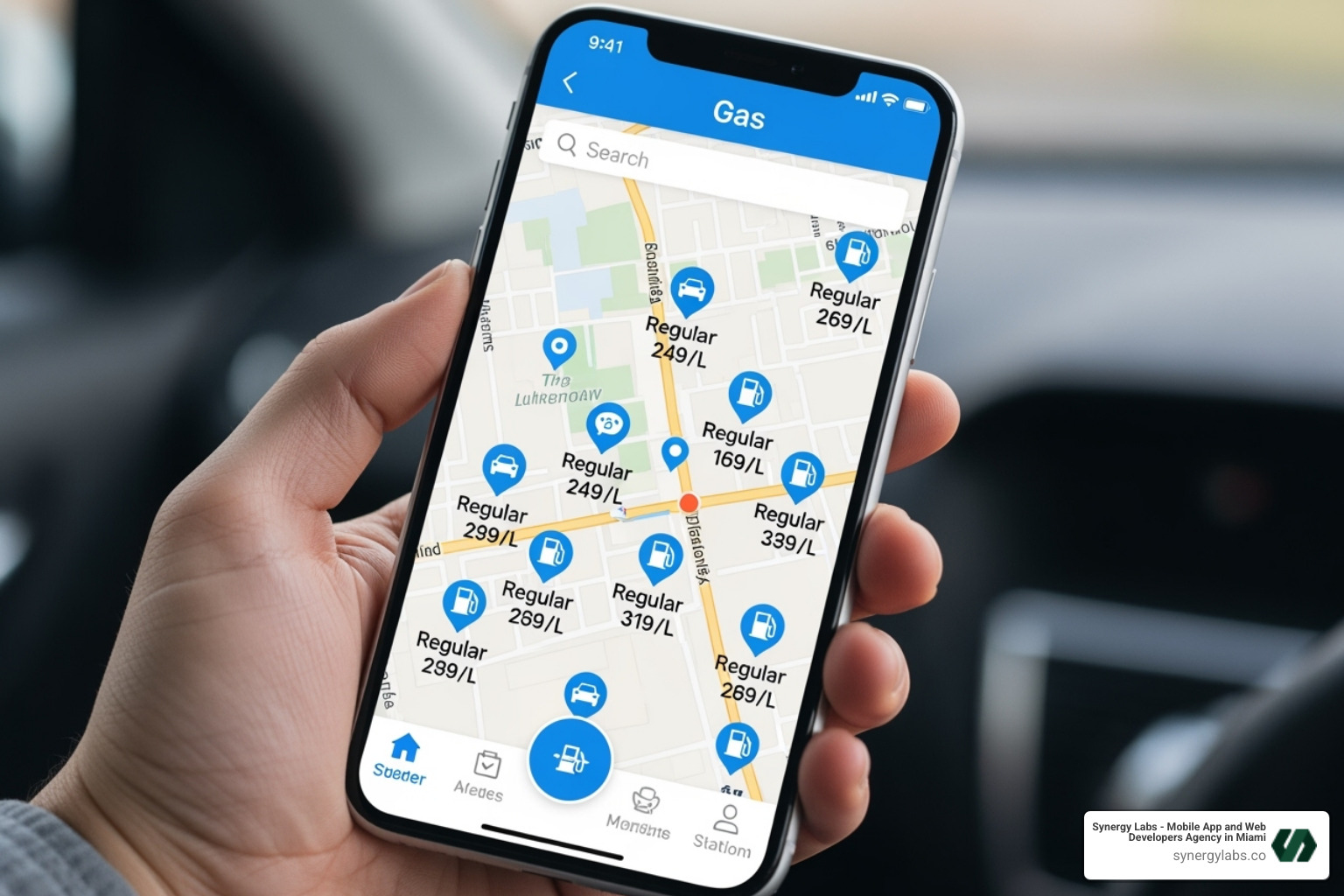
His first hit, TBH (To Be Honest), was simple: an app for high schoolers to anonymously send compliments, creating a space for pure positive reinforcement. The magic wasn't the tech, but the psychology. Bier knew teens crave validation but fear vulnerability; anonymity made giving compliments safe and fun.
After Facebook acquired TBH, Bier built Gas, refining the formula. Gas gamified compliments with flattering polls, creating powerful viral loops disguised as entertainment.
The zero-dollar marketing strategy was about building virality into the product. Each interaction on Gas encouraged users to invite friends, creating organic growth as the app spread through high school networks. This approach tapped into fundamental human psychology, making users feel good. As we covered in How Nikita Bier Built Two Viral Apps Without Spending a Dollar on Marketing, this emotional connection is key to viral success.
The anonymity factor was crucial, removing social risk while keeping the emotional reward. This turned social anxiety into a fun, addictive experience. Bier's success, detailed in How Influencers Like Nikita Bier Are Redefining Startup Marketing, shows that understanding audience needs is more powerful than any ad campaign.
The biggest lesson? Build emotional experiences, not just features. Bier created digital spaces that made people feel good, turning users into advocates. For startups, the key is to find the intersection of human psychology and problem-solving to drive organic growth.
Tezza Barton turned her personal aesthetic into a thriving tech business, offering a clear blueprint for monetizing a personal brand through an app.
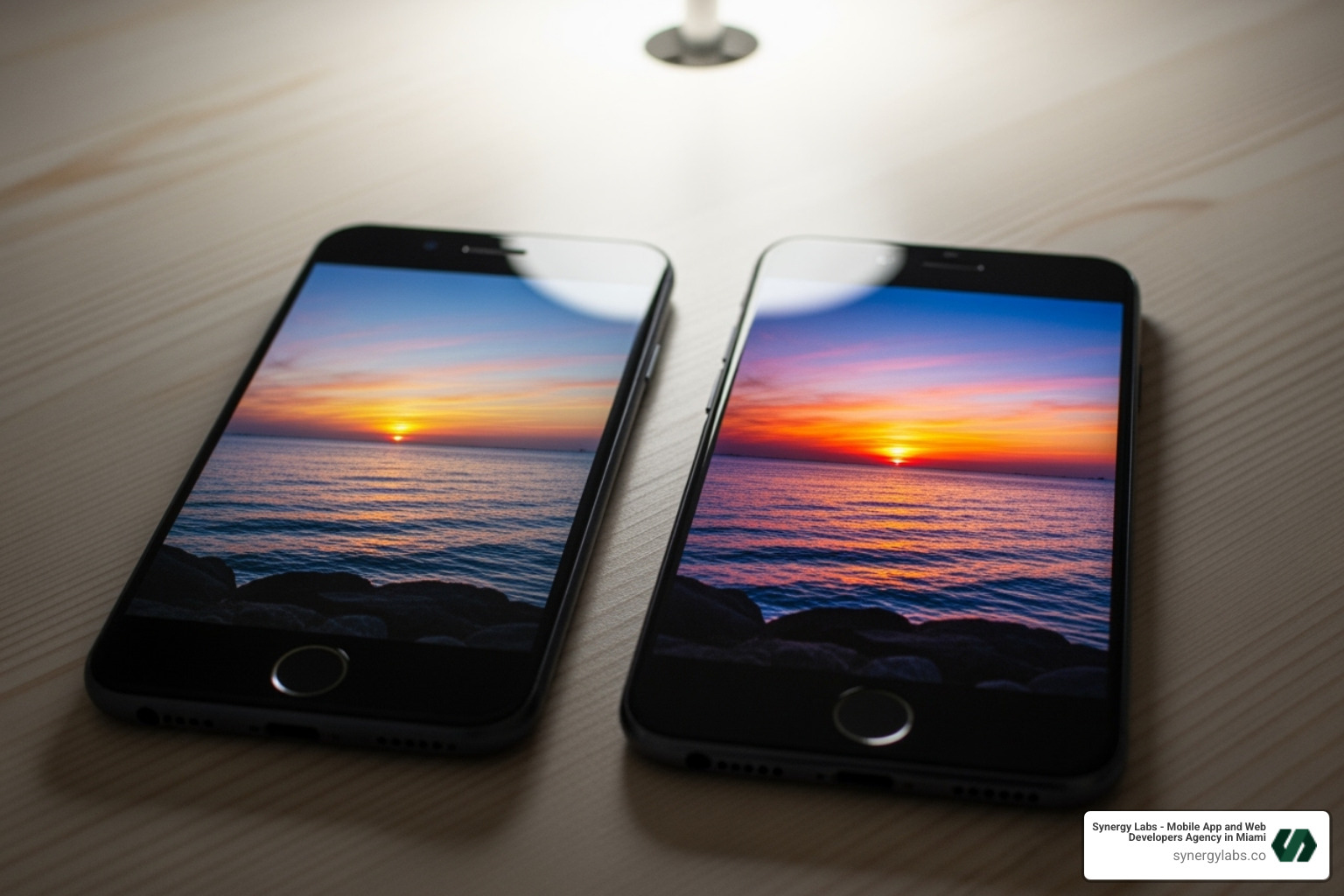
How she did it: The Tezza App grew organically from a genuine need. Her 1.1 million followers constantly asked how she achieved her signature visual style. The app answered thousands of DMs by packaging her expertise into user-friendly filters and presets. She was essentially bottling her creative DNA.
Her community-building was unique. She treated followers as co-creators, sharing behind-the-scenes content and asking for feedback, which fostered a strong sense of involvement.
What made it successful? The key was authentic brand integration. Every filter felt distinctly "Tezza," changing a simple editing tool into a lifestyle product. The subscription model ensured sustainable growth by providing ongoing value through regular updates and exclusive content, making users feel part of an evolving community.
Her Instagram integration was seamless. She used her own app to create content, which drove downloads in a perfect feedback loop: her social media promoted the app, and the app improved her content.
Lessons for Startups: Monetize your unique expertise, build for a specific niche instead of the masses, and leverage community feedback for product development. Tezza proved that even an aesthetic can be a valuable product if it solves a real problem for the right audience.
Tezza's model for turning influence into recurring revenue is a key lesson in the Top 5 Influencer-Founded Apps and What Startups Can Learn. She showed that the best products come from creators who are also their own target users.
When Michelle Phan's 2007 YouTube tutorials laid the groundwork for a beauty tech empire, Ipsy. Her story is a transformative example in our Top 5 Influencer-Founded Apps and What Startups Can Learn.

How she did it: Starting with a blog and moving to YouTube, Michelle Phan built a massive following by creating a genuine, trust-based relationship with her audience through accessible beauty tutorials. The genius of Ipsy wasn't the subscription box, but the personalized beauty experiences it offered. The app used quizzes and feedback to tailor products to each user's unique needs.
Its AI-powered personalization was revolutionary. Ipsy delivered custom beauty bags, and the app allowed users to refine their preferences, creating a dynamic findy platform.
What made it successful? Massive brand recognition, evidenced by 4.4 million Google searches in a year, stemmed from Michelle's understanding that beauty is deeply personal. She converted her YouTube community into an engaged app ecosystem. The acquisition of BoxyCharm further solidified Ipsy's market dominance and evolution.
The app solved beauty overwhelm. It provided trusted, scalable guidance by combining Michelle's expertise with smart technology. At Synergy Labs, we know personalized UX is crucial for retention, as we discuss in The Importance of User Experience (UX) in Mobile App Design. Ipsy is a prime example.
Lessons for Startups: Key lessons include: build community before product, use personalization as a competitive advantage, and think beyond your initial product to innovate and expand.
Playbook differs from other apps on our Top 5 Influencer-Founded Apps and What Startups Can Learn list. It's a platform that empowers fitness professionals to become app entrepreneurs, effectively creating influencers by providing them with tools to build digital businesses.

How it revolutionized fitness entrepreneurship: Playbook offers a "business in a box" solution for talented trainers who lack coding skills, removing a major barrier to entry. Creators upload their content—workouts, nutrition guides, and more—and Playbook handles the technical side, including payments, distribution, and analytics. This allows them to launch a branded app quickly.
The numbers are impressive. Some creators on Playbook have earned over $1 million, allowing them to focus full-time on their passion for fitness. The revenue model is fair: creators keep 50% after platform fees. This model, which we highlighted in our Top 5 Health and Fitness Apps to Watch in 2025, is reshaping the fitness creator economy.
Playbook's brilliance lies in solving multiple pain points at once: it removes technical barriers, handles payment processing, and provides real-time analytics to help creators understand their business performance. The platform democratizes app creation in the fitness industry, giving individual instructors the same tech capabilities as major brands.
The startup lesson is profound: Playbook became the infrastructure for fitness entrepreneurs rather than a competing fitness app. They solved the core business and tech challenges for creators. For startups, Playbook's simple creator onboarding is a model to study. It proves the biggest opportunity can be in empowering others to create and monetize their content, a model worth studying for any platform-based startup.
BeReal took the social media world by storm with a simple idea: a daily notification and a two-minute window to capture unfiltered reality.
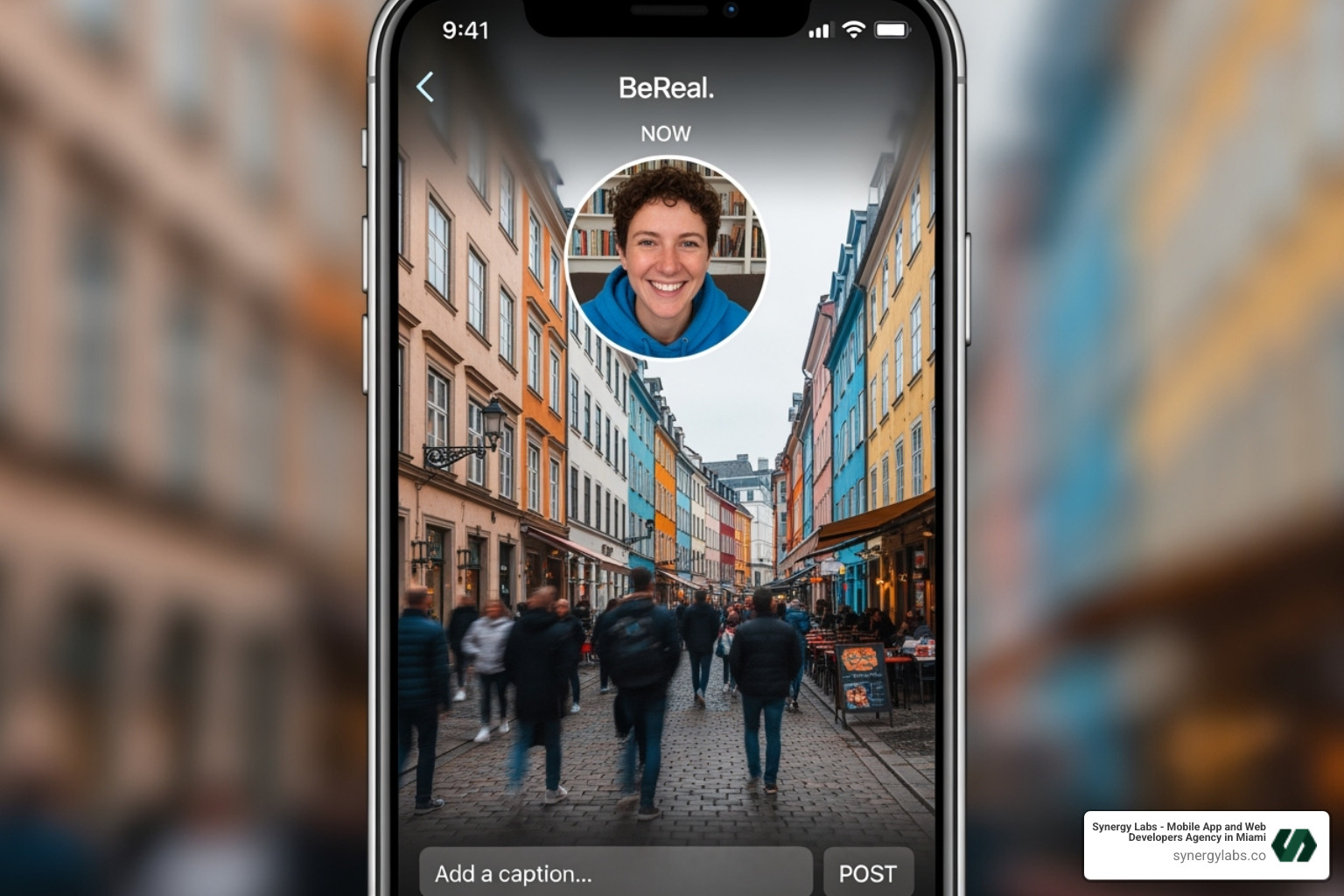
How it works: Co-founded by Alexis Barreyat, BeReal challenges curated social media. Once a day, at a random time, users have two minutes to post an unedited, unfiltered photo from their front and back cameras, promoting pure, unfiltered authenticity. This flips the social media playbook. Instead of curated perfection, BeReal celebrates the mundane and messy moments of real life.
The viral magic was organic. Unlike others in our Top 5 Influencer-Founded Apps and What Startups Can Learn list, BeReal grew through genuine word-of-mouth excitement from users who loved the freedom to be themselves. The two-minute deadline creates an addictive urgency. This scarcity removes the pressure to perform, tapping into FOMO while encouraging authenticity.
What made it successful? It addressed the widespread pain point of social media fatigue. BeReal gave users, especially younger ones, permission to exist online without the pressure of performance. The user-generated content is inherently authentic by design. With no algorithms or follower hierarchies, everyone is on a level playing field, simply capturing a real moment.
This created a movement, not just an app—a rebellion against artificial social media. As we've noted in Why Founders Should Treat UX as an Early-Stage Growth Lever in 2025, its simple UX was key to its growth.
Lessons for Startups: BeReal's success offers key insights: challenge the status quo, prioritize authentic experiences, and trust in organic growth when your product solves a real problem. The app's compelling nature made users its best marketers.
The stories in Top 5 Influencer-Founded Apps and What Startups Can Learn reveal a pattern of strategic thinking, not just luck. Success comes from leveraging community and authenticity to build products that resonate, a strategy any startup can adopt.
Unlike traditional startups that build first and then seek customers, influencer-founders start with an engaged community. This community advantage provides a built-in focus group, instant feedback, and social proof. The result is a dramatically lower customer acquisition cost. More importantly, these communities act as collaborators, providing feedback that shapes the product and builds brand loyalty. When users feel heard, they become powerful advocates.
Successful influencer-founded apps are authentic extensions of the creator's brand. The Tezza App, for example, feels like direct access to her creative process. This creates a seamless user journey where the app is a natural progression from the creator's content. As we discussed in our podcast, From Playbook to Product: How Founders Are Building Viral Apps in 2025, this deep integration makes the product feel indispensable.
While downloads are a start, the lessons from Top 5 Influencer-Founded Apps and What Startups Can Learn show that deeper metrics matter more. Engagement metrics, like daily use, and high retention rates tell the real story. User-generated content and positive community sentiment are powerful indicators of success, turning users into marketers. Lifetime value (LTV) is the key measure. These apps prove that brand loyalty trumps fleeting viral moments, creating sustainable businesses built on genuine community connection.
The rise of influencer-led apps marks a fundamental shift in product development and marketing. This trend is redefining the startup playbook, proving that authentic community connection is more valuable than massive venture capital. As the creator economy matures, we're seeing more sophisticated, niche, and technologically advanced apps emerge.
The outlook is strong. The creator economy, valued at over $104 billion with 50 million creators, is accelerating. Key trends shaping the future include:
With the app market hitting 257 billion downloads in 2024 according to industry data, competition is fierce. However, creator-founded apps have a unique advantage: a built-in, engaged audience. This allows them to focus on building something their community actually needs from day one. The lessons from the Top 5 Influencer-Founded Apps and What Startups Can Learn are applicable to any entrepreneur who understands their community's problems.
The journey through the Top 5 Influencer-Founded Apps and What Startups Can Learn reveals a core truth: the best apps come from real people solving real problems for communities they understand intimately.
The pattern is unmistakable: Founders like Nikita Bier, Tezza Barton, and Michelle Phan succeeded by building authentic products for communities they knew intimately. They leveraged trust and direct feedback, which dramatically reduces startup risk. This blueprint flips the traditional model: they launched with loyal users waiting, armed with real-time feedback to guide development.
Your path to success follows five core principles:
At Synergy Labs, our experience developing successful apps like Clapper confirms that community-centric projects thrive. The influencer-founded model isn't just for celebrities; it's for any founder with deep community insight. As the #1 partner for visionary founders, we specialize in turning these insights into high-growth mobile apps, pairing you with senior talent who understand how to build products people love.
Your community is waiting. The question isn't if, but when.
Let's discuss your project and apply these proven strategies to your idea. Synergy Labs is ready to help you build the next great community-driven app.
Getting started is easy! Simply reach out to us by sharing your idea through our contact form. One of our team members will respond within one working day via email or phone to discuss your project in detail. We’re excited to help you turn your vision into reality!
Choosing SynergyLabs means partnering with a top-tier boutique mobile app development agency that prioritizes your needs. Our fully U.S.-based team is dedicated to delivering high-quality, scalable, and cross-platform apps quickly and affordably. We focus on personalized service, ensuring that you work directly with senior talent throughout your project. Our commitment to innovation, client satisfaction, and transparent communication sets us apart from other agencies. With SynergyLabs, you can trust that your vision will be brought to life with expertise and care.
We typically launch apps within 6 to 8 weeks, depending on the complexity and features of your project. Our streamlined development process ensures that you can bring your app to market quickly while still receiving a high-quality product.
Our cross-platform development method allows us to create both web and mobile applications simultaneously. This means your mobile app will be available on both iOS and Android, ensuring a broad reach and a seamless user experience across all devices. Our approach helps you save time and resources while maximizing your app's potential.
At SynergyLabs, we utilize a variety of programming languages and frameworks to best suit your project’s needs. For cross-platform development, we use Flutter or Flutterflow, which allows us to efficiently support web, Android, and iOS with a single codebase—ideal for projects with tight budgets. For native applications, we employ Swift for iOS and Kotlin for Android applications.




For web applications, we combine frontend layout frameworks like Ant Design, or Material Design with React. On the backend, we typically use Laravel or Yii2 for monolithic projects, and Node.js for serverless architectures.






Additionally, we can support various technologies, including Microsoft Azure, Google Cloud, Firebase, Amazon Web Services (AWS), React Native, Docker, NGINX, Apache, and more. This diverse skill set enables us to deliver robust and scalable solutions tailored to your specific requirements.








Security is a top priority for us. We implement industry-standard security measures, including data encryption, secure coding practices, and regular security audits, to protect your app and user data.
Yes, we offer ongoing support, maintenance, and updates for your app. After completing your project, you will receive up to 4 weeks of complimentary maintenance to ensure everything runs smoothly. Following this period, we provide flexible ongoing support options tailored to your needs, so you can focus on growing your business while we handle your app's maintenance and updates.